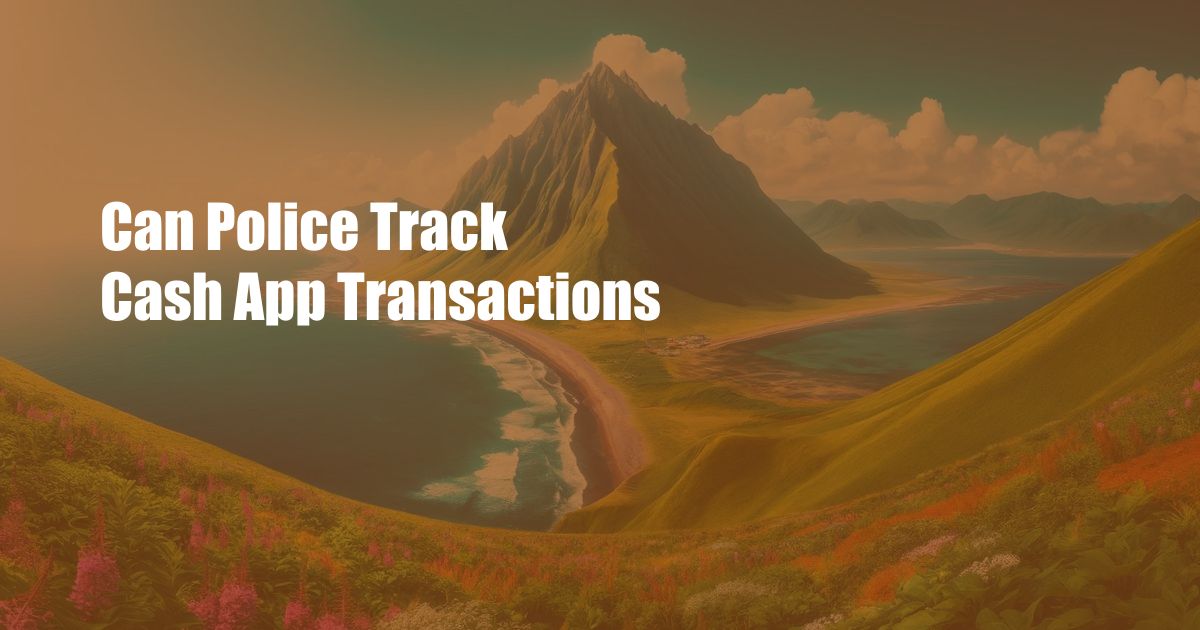
Can the Police Track Cash App Transactions?
In today’s digital age, it’s more common than ever to use mobile payment apps like Cash App to send and receive money. But what happens if you’re involved in a crime and the police want to track your Cash App transactions? Can they do it? The answer is yes, but it’s not always easy.
Cash App is a peer-to-peer payment app that allows users to send and receive money using their mobile phones. The app is owned by Square, Inc., a publicly traded company. Cash App is available in the United States and the United Kingdom.
Understanding Cash App Tracking Capabilities
Cash App stores user data on its servers, including transaction history, account balances, and personal information. This data can be subpoenaed by law enforcement agencies if they have a valid warrant. In addition, Cash App may voluntarily provide user data to law enforcement agencies if it believes that the data is relevant to a criminal investigation.
However, it’s important to note that Cash App has a privacy policy that protects user data. This policy states that Cash App will not share user data with law enforcement agencies unless it is required to do so by law.
Law Enforcement’s Access to Cash App Data
There are several ways that law enforcement agencies can access Cash App data. One way is through a subpoena. A subpoena is a court order that requires a person or organization to produce documents or other evidence. If law enforcement agencies have a valid subpoena, they can compel Cash App to turn over user data.
Another way that law enforcement agencies can access Cash App data is through a search warrant. A search warrant is a court order that authorizes law enforcement officers to search a person or place for evidence of a crime. If law enforcement agencies have a valid search warrant, they can search Cash App’s servers for user data.
Tips for Protecting Your Privacy
If you’re concerned about the privacy of your Cash App transactions, there are several steps you can take to protect yourself.
- Use a strong password for your Cash App account
- Don’t share your Cash App login information with anyone
- Be careful about who you send money to
- Keep your Cash App app updated
- Review your Cash App transaction history regularly
Frequently Asked Questions
- Can the police track Cash App transactions?
- What information can the police access?
- How can I protect my privacy?
Yes, the police can track Cash App transactions if they have a valid warrant or subpoena.
The police can access your transaction history, account balances, and personal information.
You can protect your privacy by using a strong password, not sharing your login information, being careful about who you send money to, keeping your app updated, and reviewing your transaction history regularly.
Conclusion
Cash App is a convenient and easy way to send and receive money. However, it’s important to be aware of the privacy risks associated with using the app. By taking steps to protect your privacy, you can help to keep your financial information safe.
Are you interested in learning more about Cash App? If so, please leave a comment below.
 Azdikamal.com Trusted Information and Education News Media
Azdikamal.com Trusted Information and Education News Media